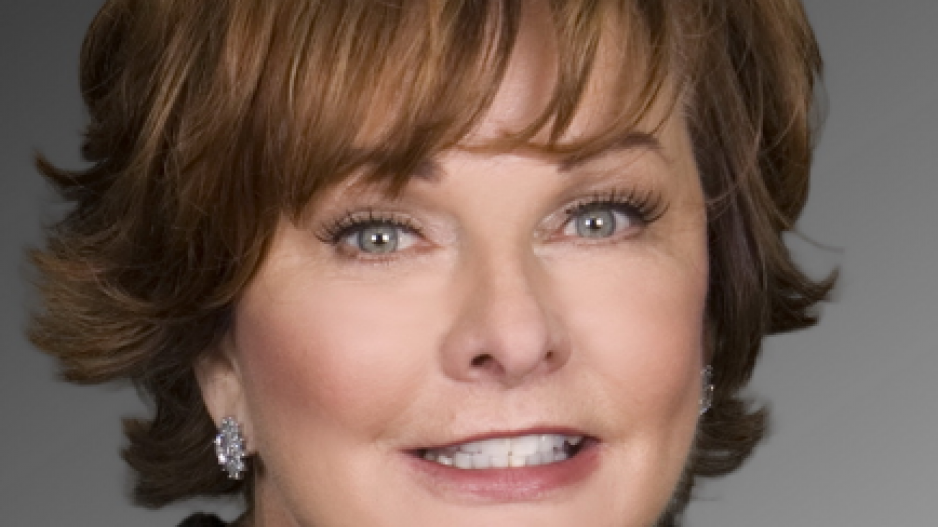Former mayor Dianne Watts’ successor Linda Hepner has been voted in as the mayor of B.C.’s second-largest city.
A three-term councillor under Watts’ Surrey First slate, Hepner beat out councilor Barinder Rasode and former mayor Doug McCallum in what was considered a tight three-way race until the polls closed.
Emerging with a significant lead over her competitors, Hepner’s campaign was in the image of Watts’ vision for Surrey, and she has vowed to keep building on the momentum created by the major development and investment projects spearheaded by Surrey First.
“In terms of creating a new cultural corridor, the innovation health tech cluster – the whole point of building a clean technology cluster is to build quality jobs for our citizens so that they can work and live in Surrey. And play here too,” said Anita Huberman, CEO of the Surrey Board of Trade.
“It’s important to have experience at the helm of such a large city,” she added. “We have a very good working relationship to build Surrey’s economy with Linda Hepner. We are pleased that she’s been selected by voters as mayor.”
“This was as expected,” said Maghar Singh Dhaliwal, president of the Surrey-based South Asian Business Association of BC.
“We offer our congratulations, but we hope she will take care of small businesses. She has promised us in the past she would look into assisting new immigrants who are starting small businesses. There is a lot of bureaucracy.”
“Small businesses are the backbone of any healthy economy. If you start a small business, you create employment. The healthier we are, the healthier the economy.”
Right up until the election, the biggest concern for Surrey voters was crime – and with reason.
For the third consecutive quarter, both violent crime and property crime were up compared with last year, by 14 and 27 per cent respectively.
The issue featured prominently in all three frontrunner campaigns, with each including plans to increase the number of police officers on the street. Although promising change, Hepner stood firm that fears over crime were short-sighted, with recent spikes in crime not reflecting a decade-long downward trend from 2004-2013 – a success she attributed in part to the Crime Reduction Strategy Watts started in 2006.
Rasode and McCallum both built campaigns around reversing perceived Surrey First inaction. Rasode proposed hiring 200 community safety officers as part of a 360-degree plan to extend the city’s security presence, while McCallum said he would close down drug recovery houses which he argued invite crime.
The other major election issue was transportation, which the three mayoral candidates agreed could be addressed with a light rail transit system to better connect Surrey’s six spread out town centres.
A 27-kilometre LRT system for the city has been tabled as part of the Mayor’s Council Investment Plan. Hepner publicly vowed to have the first phase of the $2.1-billion project completed within four years, which would mean connecting Surrey City Centre with Guildford and Newton by 2018. Along with Rasode, she also advocated for more rapid bus routes in the interim. McCallum’s primary transportation focus was to get more community buses on Surrey’s roads.
On the business front, Hepner and McCallum found themselves on opposite ends of the risk-tolerance spectrum when it came to city investment in development. Hepner remained a steadfast champion of Watts’ and Surrey First’s vision for the city, arguing that a city that doesn’t invest in itself sends the wrong signal to investors.
As with crime, she challenged that concerns over city debt were too far removed from context, and that city-owned land holdings have kept taxes low, encouraged private investment and ultimately created City Centre.
McCallum strongly criticized the city-owned Surrey City Development Corporation (SCDC) – which oversees the city’s real estate development sector – stating firmly that a municipality should have no business in land speculation. He also said he would liquidate its assets and rein in the city’s debt load, which was about a third of its financial assets at $245 million in 2013.
Rasode too wanted to dismantle the SCDC, and said she would use part of those funds to support other initiatives, such as community safety officers. She had also committed to an independent audit of the $150-million city hall project commissioned by Surrey First.




